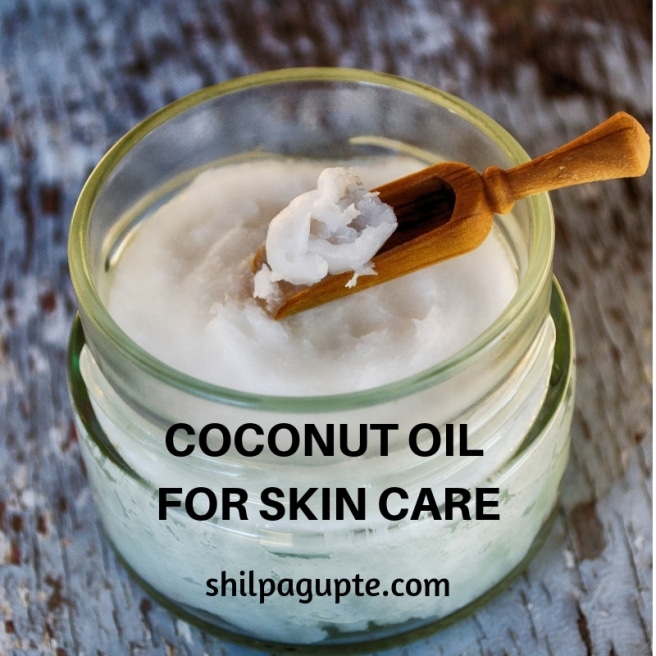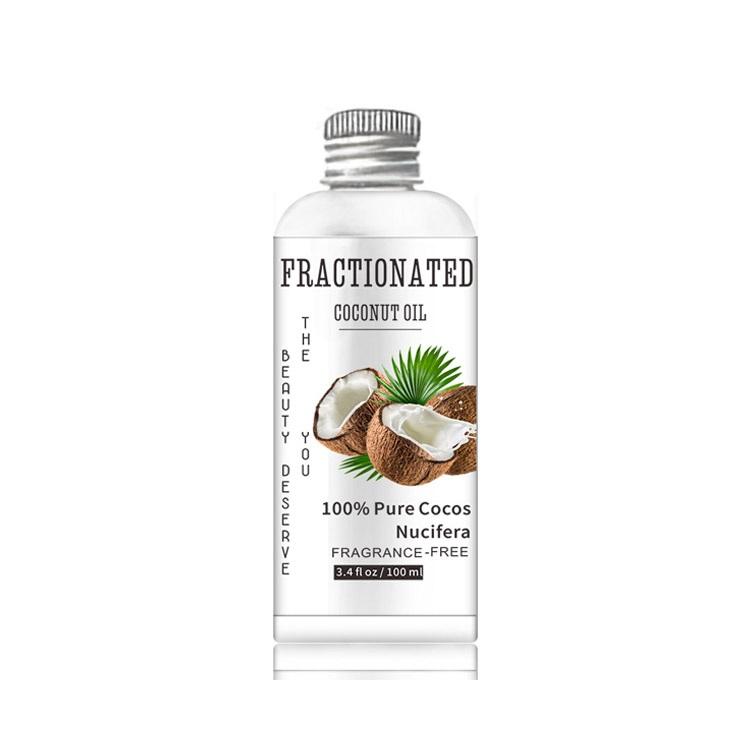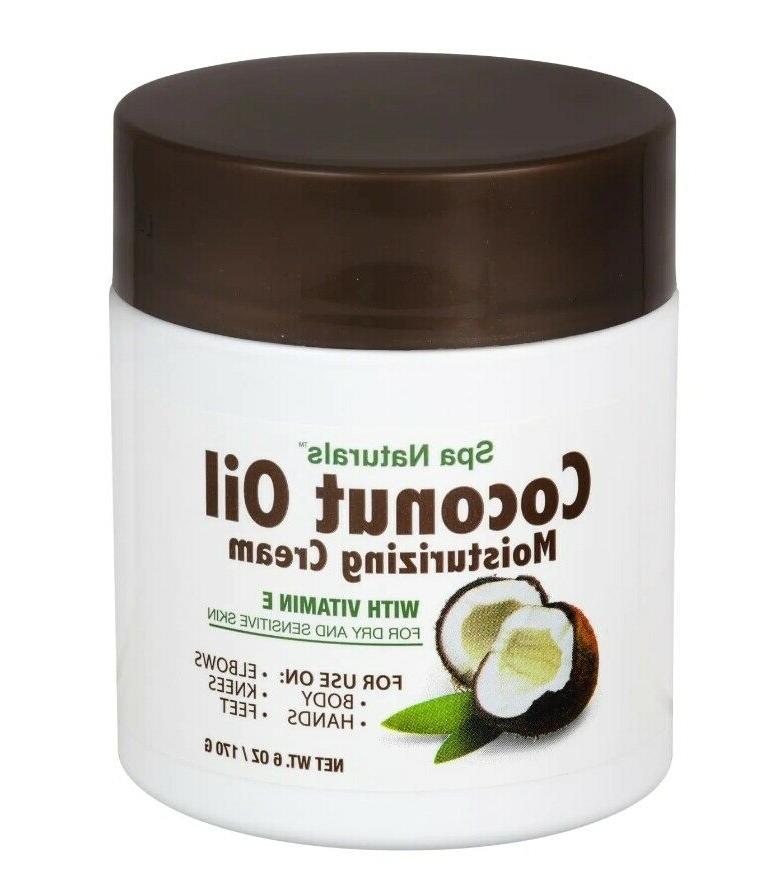Best Type Of Coconut Oil For Skin
The best type of coconut oil for skin skin is organic, virgin, cold-pressed coconut oil, as its the least processed and retains the most nutrients.
When using coconut oil for your face, avoid buying the more processed varieties produced primarily for food purposes. It may be great for cooking, but not ideal for your face.
Coconut Oil For Dry And Itchy Skin
If you have itchy skin, youâve probably tried every remedy possible, from medical treatment to natural remedy for itching. But coconut oil for itching is considered one of the best natural remedies for itchy and dry skin. It has lauric acid, which makes coconut oil unique as a home remedy for body itching. Eczema is one of the leading causes of dry and itchy skin, and lauric acid works as an active ingredient against itching and other skin conditions.
Use In Place Of Lotion
Coconut oil is a commonly used as a hydrating oil in its raw form or as an ingredient in moisturizers, says Dr. Zeichner. Simply use it as your go-to moisturizer if youre looking for an affordable option that not only smells amazing, but also leaves your skin feeling nourished and smooth. If you love testing out new skin care, you can also try a body lotion that contains coconut oil to mix things up every so often.
You May Like: How To Tell If I Have Melanoma
Coconut Oil Lemon Juice Honey Cocoa Powder And Carrot
Cocoa is an excellent source of natural anti-oxidants and saturated fats that help to heal flaky and dry skin. Carrots are rich sources of potassium and beta-carotene that help in skin hydration and keep the tissues of the skin nourished.
- Add 1 tablespoon coconut oil, 2 tablespoons lemon juice, ½ teaspoon honey, ½ teaspoon cocoa powder and ½ a grated carrot to a bowl.
- Mix vigorously to make a smooth mixture.
- Apply in gentle circular motions all over your face.
- Wait for 10-15 minutes and rinse off with cool water.
- Repeat the method once a week for two months.
How Do I Apply Coconut Oil To My Cats Fur

Both ingesting and applying topically will improve the moisture level of your cats skin and coat. Begin by taking the coconut oil and rubbing it in your hands to soften, then apply all over the skin. To make sure that your cat does not lick off the oil after application, use a standard Elizabethan collar.
Read Also: Spray Tan For Fair Skin
How To Use Coconut Oil To Retain Moisture In Dry Skin
Does your skin always feel dry, itchy and rough even though you follow a basic skincare routine? Dry skin appears dull, coarse, dehydrated and scaly in texture. Some people may have dry skin naturally, while others may develop it due to certain environmental factors.
Sebum, an oily substance produced by the sebaceous glands, forms a protective layer on the skin to keep it hydrated. If the skin doesnt have enough sebum, it loses its moisture content and tends to become dry. Some factors that can trigger dry skin are cold and dry weather, frequent washing or hot baths, excessive sun exposure, dehydration or simply ageing of the skin.
If dry skin is not treated properly, it may become inflamed, start peeling and even develop painful cracks that bleed in severe cases. A number of medicated creams, lotions and ointments in the market claim to cure the problem of dry skin. However, it is much better to use natural DIY home remedies like coconut oil, honey or avocado to effectively moisturize the skin and provide deeper, long-lasting hydration.
Coconut oil works as a natural and non-greasy moisturizer for dry skin. It gets easily absorbed in the skin and also helps to exfoliate the outer layer of dry and dead skin cells, resulting in soft and glowing skin.
Is There A Lotion For Dogs Dry Skin
Dogs suffer from dry skin just like people do. Unfortunately, there is not a lot of lotion specifically made for dogs with dry skin. However, many commercial dog soaps and shampoos are formulated to help with this ailment. Some of the best remedies for dry skin in dogs include using a moisturizer or cream before baths, using a pet-safe sunblock, and providing plenty of fresh water and exercise.
Recommended Reading: What Are The Three Kinds Of Skin Cancer
Coconut Oil And Castor Oil
Castor oil is an effective emollient and natural moisturizer for dry skin. It is highly viscous and penetrates deep into the skin tissue to nourish it.
- Mix 1 tablespoon each of coconut oil and castor oil in a bowl.
- Apply the mixture on dry skin.
- Massage it in with your fingers for 3-4 minutes.
- Rinse off with lukewarm water and pat dry.
- Continue following the method twice in a week.
Side Effects Of Using Coconut Oil For Wrinkles
Just as coconut oil hasnt been widely researched and supported as a wrinkle treatment, it hasnt been studied for potential side effects, either. While the oil has been researched as a possible treatment for atopic dermatitis, its possible that users who are unknowingly sensitive to the product could unintentionally develop dermatitis after use.
As a rule of thumb, you should stop using coconut oil if your skin shows signs of sensitivity or allergic reaction. This includes:
Read Also: Can You See Skin Cancer
Coconut Oil Messes Up Your Skins Microbiome
Anything that disrupts your skins healthy microbiome can make your skin worse.
Youve heard to ditch your anti-bacterial soaps and hand sanitizers because they increase your risk of skin rashes like eczema and psoriasis, right?
Well, if your skin has a rash, one of the major problems is dysbiosis of the skins healthy microbiome. Your skins microbiome helps your skin stay healthy and maintain a tight barrier from the outside world.
Coconut oil can kill microbes including bacteria, viruses and fungus. A solution with as little as 5% coconut oil is bactericidal to several types of bacteria.
One of the antimicrobial components found in coconut oil is the fatty acid called monolaurin. Monolaurin makes up about half of the fat in coconut oil and it kills bacteria by disintegrating their outer membranes.
Theoretically, it makes sense to use an anti-microbial like coconut oil on your skin if you have dysbiosis, but it doesnt always work that way.
While certain fungal rashes might benefit from using a natural antimicrobial as a spot treatment, regular use is not a good idea. Even natural antimicrobials can disrupt the balance of the skin’s microbiome which can affect your immune system and barrier function, increase inflammation, and lead to dysbiosis, says Pontillo.
Bottom line? Just because coconut oil has anti-microbial properties doesnt mean you should put it on your skin, despite what youve read.
Coconut Oil Can Help Other Skin Conditions
I know Ive been giving coconut oil a bad rap so far, but coconut oil actually is great for a variety of skin conditions .
In particular, coconut oil was shown to alleviate physical symptoms of atopic dermatitisa skin condition that causes an itchy red rashin pediatric patients. Another study found that in addition to reducing the appearance of atopic dermatitis, coconut oil was effective at combating colonization of Staphylococcus aureus, which produces a certain toxin that causes the immune system to react by breaking out in dry, scaly patches.
Another study found that coconut oil was as effective as mineral oil in treating xerosis, a condition similar to atopic dermatitis that also causes dry, scaly skin.
Finally, a 2010 study of animal subjects also should that wounds treated with virgin coconut oil healed much faster than those that were not treated with coconut oil. So, if you have a scrape or cut and dont have Neosporin handy, a dab of coconut oil may help your wound heal faster.
Recommended Reading: Cool Undertone Skin Hair Color
As An Ingredient In Personal Care Products
Many personal care products use coconut oil as an ingredient to add smoothness to the texture of the product and to make it easier to spread, Goldstein says.
It may be preferable to use coconut oil extracts over plain oil, especially if breakouts are a concern or you have naturally oily skin.
Try to use a product that uses an extract over plain oil, Goldstein said.
Speaking about a product she helped develop, Goldstein said, Like other products that use coconut oil extract, The Daily by GETMr. is a suitable option that moisturizes skin without leading to breakouts.
Patel adds that brands like Kopari and Sol de Janeiro, which makes the Brazilian Bum Bum line, have successfully created products that contain good blends of coconut oil.
In general, you can follow these steps to use coconut oil as a moisturizer:
Alternatively, you can massage your body with oil and then wash off the excess.
Since the need for moisturizing varies from person to person, Goldstein says using coconut oil is a unique experience to everyone.
- potential infection, known as folliculitis
- allergic reaction
Coconut oil is considered to be comedogenic, which means it can clog pores.
Interesting Facts About The Origins And Production Of Argan Oil:

- Argan oil is one of the rarest, most highly-valued oils in the world . It is a plant-based oil that comes from the Argan tree, which is exclusive to Morocco. It is called the tree of life there, and it has been used by locals for centuries.
- Every part of the plant is utilized: Getting oil from the fruit of the argan tree involves drying it, extracting the nuts, cracking them to reveal the kernels, and pressing them to release the oil. The byproduct of pressing is a thick argan paste, which is sold locally for cosmetic products. Nothing else is wasted, as the outer pulp provides food for village animals, while the shells are burned for fuel.
- The process of extraction and selling this oil is done in a sustainable fashion. Almost all Argan oil is distributed by local co-operatives of women in Morocco . To this day, the most efficient method of extraction is hand-pressing the kernels, which provides valuable jobs to women in the country.
Also Check: Weleda Skin Food Original Ultra Rich Cream
Side Effects Of Coconut Oil
According to our skin experts, unless your skin is especially prone to congestion and pesky breakouts, coconut oil can do wonders for the skin, thanks to its robustly nutrient-dense makeup. However, if your pores tend to clog easily and blackheads are the bane of your existence, you might want to avoid coconut oil, which is heavy and regarded as one of the more comedogenic oils on the market . Or, apply it exclusively to your body parts, which have far fewer oil glands than the face and scalp.
If you don’t have breakout-prone skin, coconut oil is fine to use as a part of your daily skincare routine. If your skin is on the congested side, try reaching for other oils like calendula, hemp seed, rosehip, or tamanu, which may be less likely to cause breakouts in oily skin types. However, it is important to note that those with sensitive or eczema prone skin may be irritated by these plant-based oils.
What Is Coconut Oil
Coconut oil is a highly saturated oil that is traditionally made by extracting the oil from raw coconuts or dried coconut kernels (
At room temperature its solid, but when heated it can soften or even melt.
Its frequently used in cooking or applied directly to the skin and hair.
Coconut oil is rich in medium-chain fatty acids, which are a form of saturated fat. In fact, these medium-chain fatty acids make up about 65% of its total composition (
- Linoleic acid: 2%
- Stearic acid: 2%
Summary:
Coconut oil is used in cooking but can also be applied to the skin or hair. Its rich in saturated fat and medium-chain fatty acids, especially lauric acid.
Read Also: How Can You Tell If You Have Melanoma
Enhances Those Eyelashes And Eyebrows
Grooming your eyelashes and eyebrow is quite common among girls, however, to groom it well, nourishing it also has paramount importance. Coconut oil can provide that needed subsistence and assist in maintaining your lashes and brows. Apply Coconut oil on the brows and lashes to improve their texture and thickness.
Does Coconut Oil For Skin Actually Work
Coconut oil is the darling of the natural living crunchy community. Every real food blogger worth their salt will tell you that there are literally hundreds of ways to use the stuff, from making delicious baked goods, homemade toothpaste, or eye makeup remover, to lubricating your you-know-what and using it as a massage oil in the bedroom.
Ever seen My Big Fat Greek Wedding? Remember how Windex is the cure-all? Same idea, less hilarious and more natural.
Its commonly claimed that using coconut oil for skin is the Awesomest! Moisturizer! Ever! too. For years I kept some in a little sealed container in my bathroom, carried it in my purse, and even packed it for trips, just so I could swipe a little out with my finger to help moisturize my dry skin. It worked sorta, but not great. I also tried jojoba oil for a while . It was better, but still not awesome.
You May Like: Is Squamous Cell Carcinoma Fatal
What Is The Benefit Of Coconut Oil
This would be the longest article ever if we went over all the uses and potential benefits of coconut oil for your overall health and even hair, so let’s keep this focused on what it can do for the skin . In general, skincare oils help the skin’s lipid barrier retain moisture. Coconut oil, in particular, is non-fragrant plant oil that’s full of fatty acids, like linoleic acid and lauric acid , has antibacterial properties,and works as an emollient to soften the skin.
Why I Stopped Using Coconut Oil As A Skin Moisturizer
Updated: June 19, 2021 | | This post may contain affiliate links. for our full disclosure.
I spent years wondering why the supposedly-awesome coconut oil for skin wasnt cutting it for the dry skin on my face. It was SO frustrating! This discovery totally rocked my world, and Im still using it daily, 5+ years later.
Huge thanks to Wilder Supply Co. who asked me to try some of their skin care products and originally sponsored this post.
Written by: Beth Ricci
Every winter without fail, I get terribly dry skin on my face. The day after the we turn on the furnace for the first time in the fall, it starts. My face especially in my T-zone gets itchy, dry, and flaky. After my shower, it feels tight and awful, like that feeling you get when wearing a face mask that has dried and is ready to wash off. I do not appreciate this facet of my undeniably otherwise-flawless beauty. Not cool, face, not cool at all.
So whats a natural living, crunchy mama to do?
Read Also: Best Dog Food For Itchy Skin
Coconut Oil On Your Face Overnight
Myth:Coconut oil is a good overnight emollient.
Reality: If you cant even use coconut oil as a reliable daytime moisturizer because of its comedogenic properties, you sure as heck cant leave coconut oil on your face overnight for eight hours.
Using coconut oil overnight is a great way to get clogged pores and wake up to a breakout. Good morning, sunshine, indeed.
Alternatives to coconut oil on your face overnight: Not all oils are bad for your face. Grapeseed oil and hemp seed oil arent just great makeup removers theyre also wonderful as overnight emollients to soften skin as you sleep. Jojoba oil has a low comedogenic rating as well, says Epling, Its ideal as a carrier for other essential essences, like lavender or tea tree oil, to use overnight.
Coconut Oil Can Clog Pores

Coconut oil is comedogenic, meaning it can clog your pores, increasing your risk of breakouts and acne.
“Coconut is considered a four on the comedogenic scale. This measures how pore-clogging an ingredient is, rated zero to five with five being the most pore-clogging,” says Green. As a result, using coconut oil frequently, especially on the face, is not recommended, she says.
Though coconut oil is comedogenic, not everyone will experience acne from it as each skin type will react differently.
Recommended Reading: What Does Melanoma Under The Toenail Look Like
Coconut Oil Lotion Bars
- In a saucepan, add 1 cup coconut oil and 1 cup pure beeswax.
- Heat on low flame till the ingredients are melted.
- Add a few drops of essential oil and mix well.
- Remove from the flame and pour the melted hot mixture into muffin tins or molds.
- Allow them to sit till they get cooled.
- Rub the lotion bar between your hands for 2-3 minutes to warm it.
- Once warm, apply it directly on the affected areas of the skin.
- Repeat the application once daily.